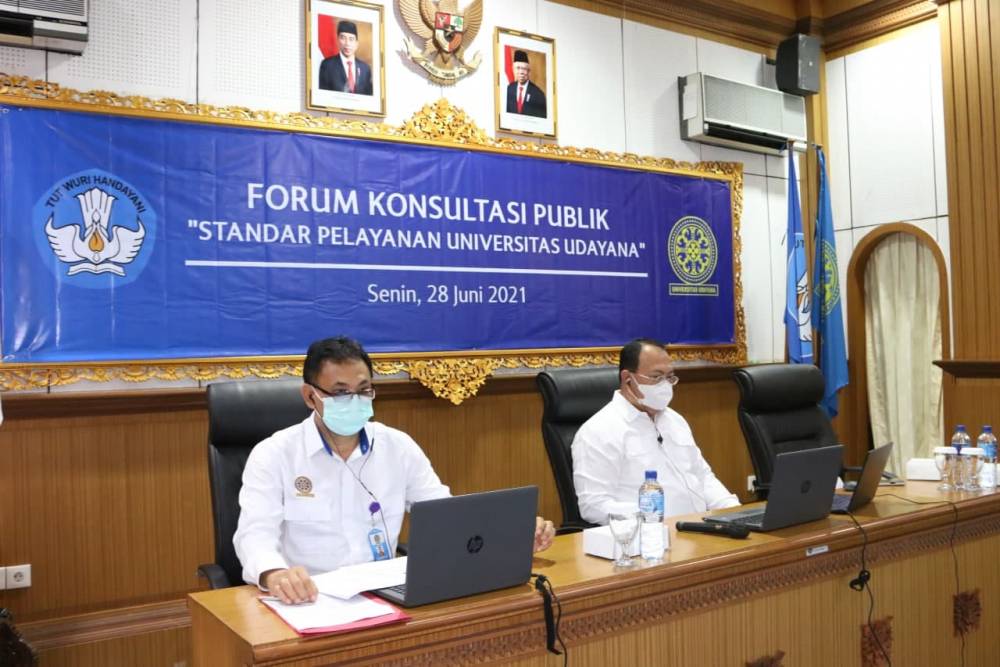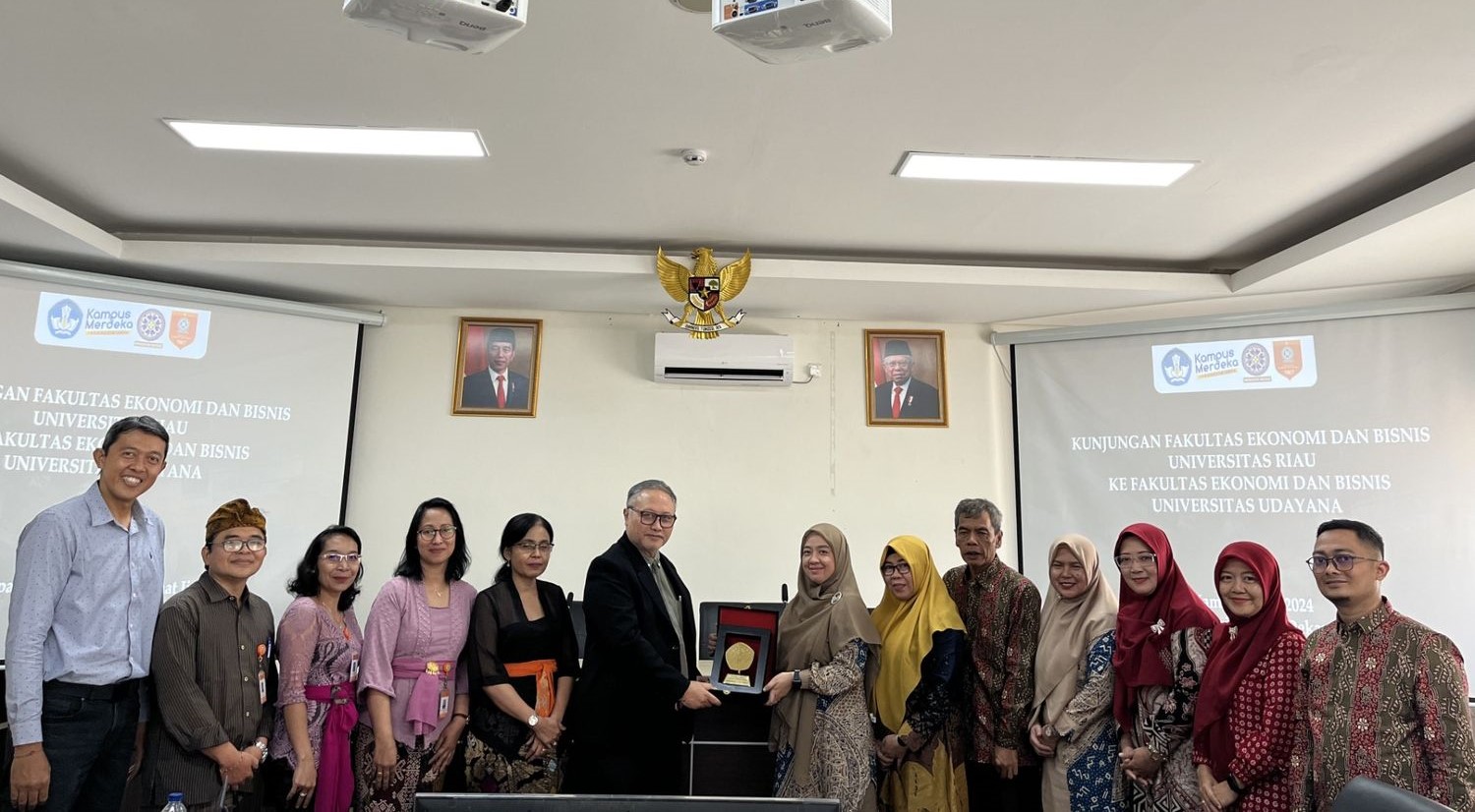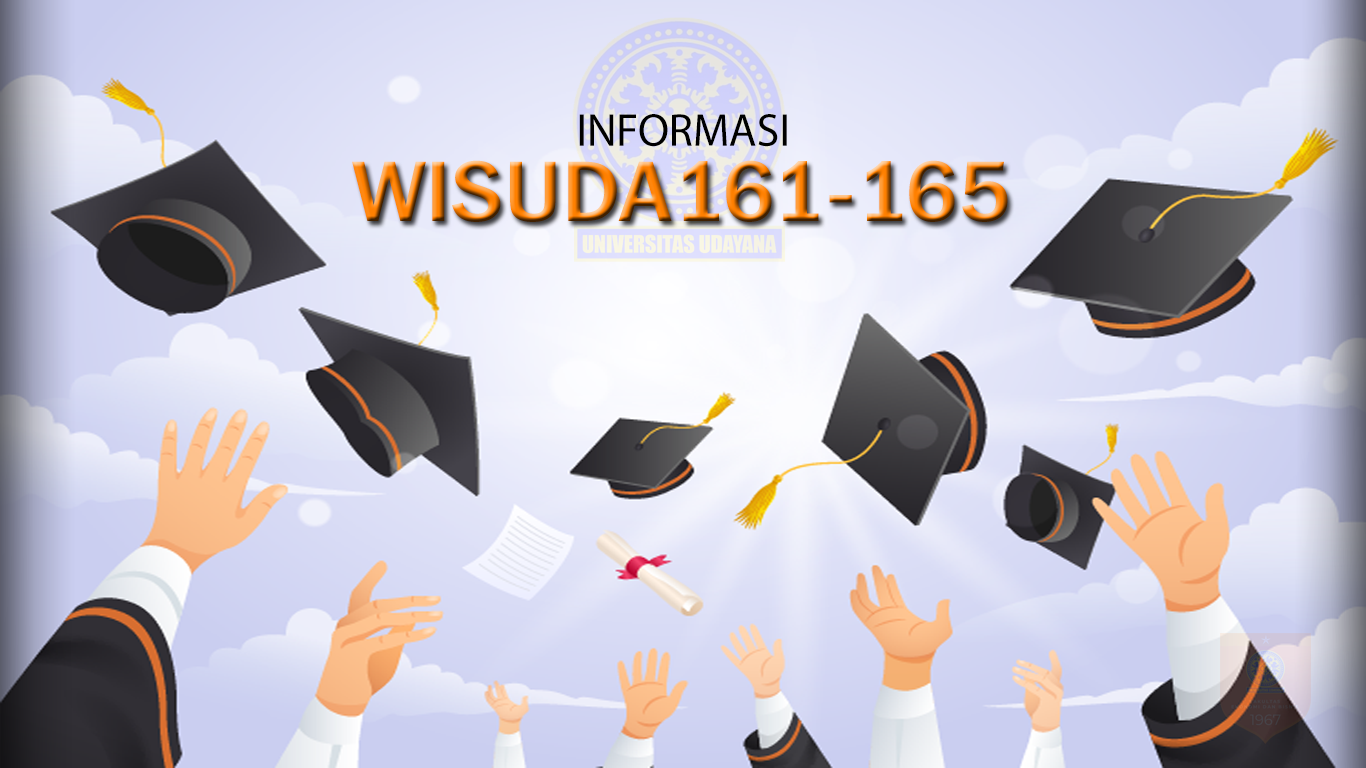Udayana University Holds Service Standard Public Consultation Forum
Udayana University (Unud), Monday (28/6), held a Public Consultation Forum activity, "Udayana University Service Standards". The activity, which was held offline and online, was attended by 200 people consisting of University Leaders, Faculty Leaders, student representatives, alumni, parents of students and the community. The event began with a report from the Head of the Bureau of Academic, Cooperation and Public Relations (BAKH) Drs. IGN Indra Kecapa, M.Ed. The resource persons in this forum were the Kemendikbudristek Young Expert Policy Analyst Aryo Anindito Karunia Aji, Unud Academic and Evaluation Sub-Coordinator I Made Budiastrawan and drg. Ida Ayu Wirastuti from Unud Hospital and moderator Sang Ayu Isnu Maharani, S.S., M.Hum.

This forum aims to align the ability of the organizers with the needs of the community. Whether it's environmental conditions, the ability of employees and budgets and so on, so that later a meeting point will be found that can be mutually agreed upon.
Rector of Unud Prof. A.A Raka Sudewi, said that Unud as a state university in the form of a Public Service Agency (BLU), always strives to improve its quality and performance in serving the community and stakeholders in accordance with the Tridharma of Higher Education. Through its vision, namely the Realization of Superior, Independent and Cultured Universities, Udayana University continues to improve by improving its infrastructure and resources. To support this, of course, a standard is needed that will be a reference in every service carried out. In addition, the importance of the existence of a public service standard that becomes a benchmark used as a guideline for service delivery and as a reference for evaluating service quality as a commitment or promise from service providers to the community to provide quality services.

The preparation of this Public Service Standard is in line with Government Regulation Number 96 of 2012 concerning the Implementation of Law Number 25 of 2009 concerning Public Services, and before the implementation of the Service Standard, it is necessary to conduct a Public Consultation Forum. The implementation of this Public Consultation Forum is in order to harmonize the ability of Udayana University in meeting the needs and interests of the community and service users, in order to create quality service delivery at Udayana University.
Vice Rector IV Udayana University Prof. Dr. Ida Bagus Wyasa Putra, S.H., M.Hum, said that this is a process that is routinely carried out every year to improve public standards that still need to be improved. From the forums carried out, all units have compiled service standards which are a measuring tool for the implementation of public services from every government institution, including Unud.
The Vice Rector also said that there are standards that have been completed and are not yet perfect. Those imperfections are part of the standard setting process. In the past, there were some that were not up to standard. But now 99 percent have entered everything. It has fulfilled the comparability requirements with other universities that are both BLU throughout Indonesia.
Meanwhile, the Bureau of Organization and Management of the Ministry of Education and Culture, Aryo Anindito Karunia Aji, expressed his appreciation for the implementation of this public consultation forum. This activity, he said, refers to Law 25 of 2009, Article paragraph 1, related to public services. As a fulfillment of this law, of course a service standard must be prepared. However, before service standards are made, it must involve all parties, both students, the community, relevant stakeholders to receive input. Do not set service standards unilaterally.

With the implementation of a public consultation forum by inviting the public, of course, it is hoped that the ability of the organizers to align with the needs of the community. Whether it's environmental conditions and the ability of employees and budgets and so on. So that later a meeting point will be found that can be mutually agreed upon.



FACULTY OF ECONOMICS AND BUSINESS